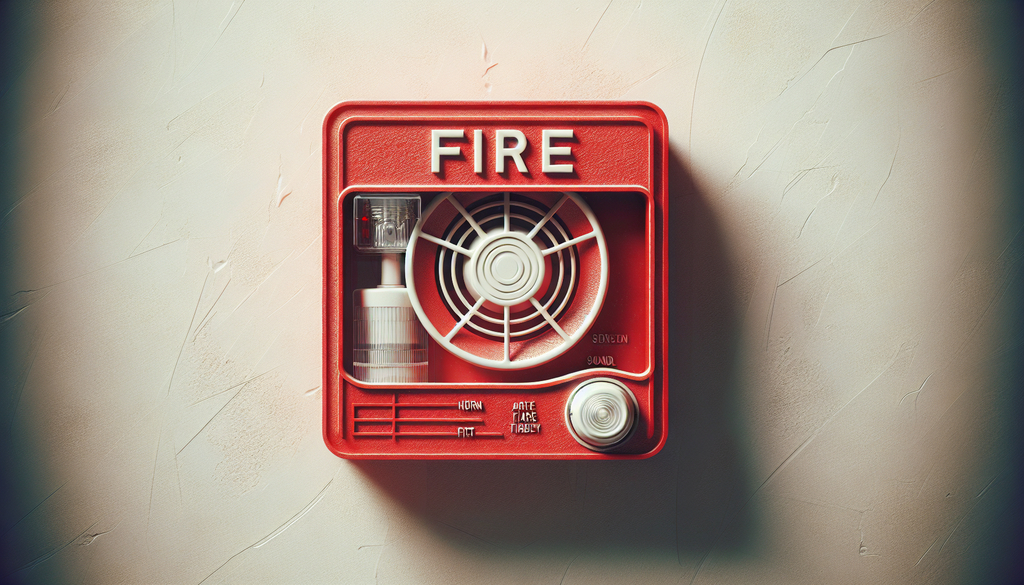Have We Grown Numb to Fire Alarms in Hospitals?

— We see them, we hear them, but we rarely react
In the ICU, the fire alarm echoes in my ears. I lock eyes with my resident, her expression as blank as mine. A shared internal voice seems to ask, "Well, there’s no smoke, and I don’t see any flames, right?" Within a second, I’m back at my screen, hastening to finish my notes. The noise is unbearable, and the strobe lights just add to the discomfort. Yet, I don't really entertain the notion of an actual fire—these alarms blare all the time without any real threat. Plus, in the ICU, surely someone would guide us if there was a serious fire situation, or so I assume.
This scenario is emblematic of how we handle fire alarms in healthcare environments today. We hear them. We see them. But we fail to react. This diminished response to something that could very well save lives—both ours and our patients'—is a serious public health dilemma. To restore the purpose and urgency of fire alarms, we should first explore why we've become so disengaged from responding to them, whether inside hospital walls or out in society.
Fires in hospitals can stem from various sources: improper storage of flammable substances, malfunctioning equipment, or faulty wiring. The U.S. Fire Administration noted that from 2014-2016, there were roughly 5,800 fires annually in healthcare facilities. Each year, these incidents resulted in an estimated five fatalities, 150 injuries, and $56 million in property damage. Curiously, data on recent hospital fires seems scarce—is nationwide reporting on healthcare fires simply not prioritized anymore? Is the risk no longer seen as imminent? Are we responding correctly? From what I’ve witnessed, the last assumption seems to miss the mark.
Anecdotal evidence gathered by the Society of Fire Protection Engineers suggests most individuals fail to respond appropriately when a fire alarm rings out, particularly in non-domestic settings. The lack of reaction typically stems from four core issues: failure to recognize the signal as an actual alarm, not knowing the right response, eroded trust in the system due to frequent false activations, and being unable to hear the alarm clearly.
Out of these, it’s the decreased trust in alarms that resonates most with me, particularly in the hospital setting. Healthcare staff are inundated with alarms daily—whether it’s an emergency code over the PA system, or persistent IV and bed alarms. Research from Johns Hopkins shows an ICU bed triggers an average of 350 alerts per day, with some units experiencing up to 771 alerts for every bed daily. No wonder alarms feel more like a frustrating distraction than a safety feature.
This widespread ‘alarm fatigue’ is more threatening than it seems. But why are we so desensitized? Numerous studies examine how this phenomenon impacts patient safety and outcomes. In fact, between 72% and 99% of hospital alarms are deemed false or unnecessary. When this volume of false alarms constantly bombard clinicians, sensory overload sets in, leading to a natural decline in response. Similar behavior manifests outside the hospital as well: the more often alarms cry out, the less urgency we feel, potentially leaving us in harm's way.
Currently, the solutions available are limited. Some researchers suggest improving sensor reliability to reduce false alarms or programming systems to better differentiate actual fire cues, such as rapid temperature changes or smoke detection. While these technological advances point us in the right direction, they can only do so much to counter the desensitization plaguing hospital environments.
Still, even these technological upgrades won’t entirely fix the problem of desensitization. A cultural shift is essential—one defined by increased awareness, proper funding, and a renewed sense of urgency in how we view fire safety. Some might wonder if the effort is even worth it, given the reduced frequency of hospital fires today versus years past. Yet, if such steps stand a chance at safeguarding just a handful of lives, perhaps the time has come to consider the effort worthwhile.
So, the next time you hear that fire alarm inside a hospital, pause and reflect before brushing it off. Sure, it could be false, just like so many other alarms throughout your day. But it also might be real. Take an extra moment, survey your surroundings, and double-check that you don’t smell or sense something unusual. And most importantly, let’s talk about this. Let’s rally together to change the culture of alarm desensitization—for your safety, and for your patients’ well-being.
Rachael Chait is an MD/MPH candidate at the University of Miami Miller School of Medicine, class of 2025.


